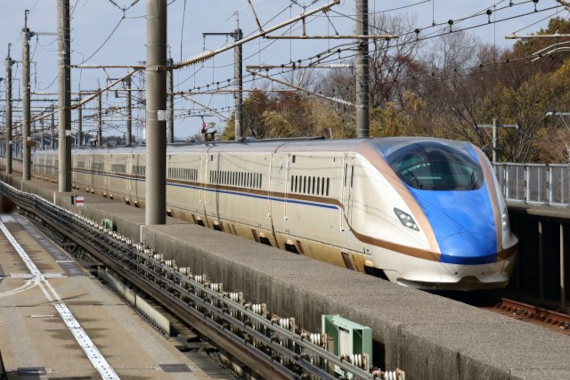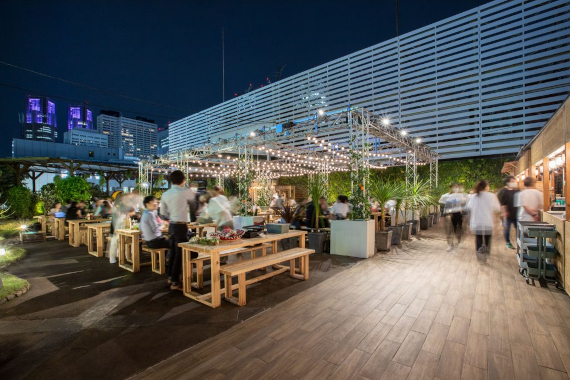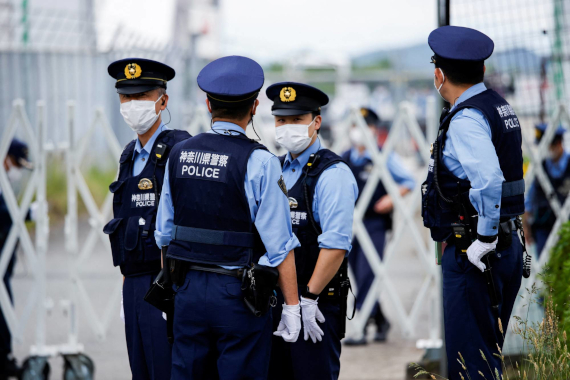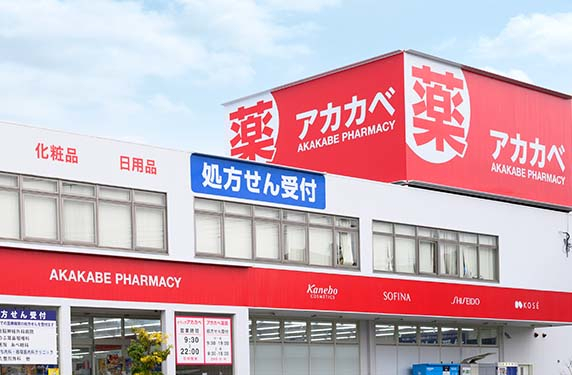NUFC in Japan
Nihon e yokoso! Welcome to Japan!
In has final exclusive article for NUFC.com, Simon Moran gives a brief guide to
getting the most out of your trip to Japan, adding to the information proved by the
club and NUST.
Trains
Japan is a densha-otaku (trainspotterís) paradise. Underground, overground,
rapid, local, new trunk line, monorail, double-deckers, one-man-car, no-man-car,
linear motor car - Japan has the lot.
Jorudan is a good public transport app with an English version for iPhone and
Android. Google and Apple maps can also guide door-to-door with mixed
transport, including trains, buses and planes.
https://world.jorudan.co.jp/mln/en/?sub_lang=ja
Google Play: https://g.co/kgs/2nGAvBF
Apple: https://apps.apple.com/us/app/japan-transit-planner/id299490481
Japanese trains run on time, all the time. Rejoice!
Part of this is attributable to the tough conditions staff work under, so please be
nice to them and donít laugh as they bow to each car as they walk through the
train.

When the Shinkansen is late for reasons of severe weather and the like, it makes
the national news.
Some times, though, the reason is more sinister. Almost 23,000 people committed
suicide in Japan in 2023, an estimated 6%, or 1,320 on the railways. Thatís almost
4 per day. Families of the departed are billed tens of thousands of pounds.
So, lend an ear if you see someone looking perturbed on the platform.
Travel cards are convenient and can be used to tap and go (terp and gan for Big
Dan Born) on all transport nation-wide.
For visitors to East Japan, get the Suica, which will also work nation-wide:
https://www.jreast.co.jp/multi/en/welcomesuica/welcomesuica.html
Japan Rail Pass
Foreign tourists visiting for an extended stay may wish to consider the Japan Rail
Pass, which gives unlimited travel on most JR services for one, two or three
weeks. This is a good deal for those considering several long Shinkansen
journeys. https://www.japan-guide.com/e/e2361.html
Getting to the Stadia
see here
Tokyo Hotels
There are lots of hotels in Tokyo, all served by booking.com, hotels.com and many
other apps and services. One hotel for the duration of a stay for both games would
be suitable.
Love hotels wonít serve that ....., but abound in town should the need arise.
An
article I wrote over 20 years ago is still relevant
Though
you might want to dating first
Mobile web and phone
To get online and make calls, there are various providers of physical and virtual
SIM cards. Pre-order and collect on arrival, or use a QR code from a supplier such
as Sakura mobile.
Choose the best to suit your needs (caveat emptor)
There is usually free Wi-Fi at convenience stores, cafes, tourist spots (though can
be unreliable) and most hotels.
Things to do and see in Tokyo
The official tourism board for Japan has an extensive page of things to do, places
to see and place to eat and drink in Tokyo. Youíll find all the key information here -
Japan National
Tourism Organization (official site)
Tokyo has a population of over 14 million; the Greater Tokyo Area, including Tokyo
and neighbouring prefectures, is the most-populous metropolitan area in the world,
with 40.8 million residents. Itís impossible not to find something great to do. And
on clear days, run up to the top of the nearest building and you may be lucky
enough to glimpse Mount Fuji.
Cash
While Japan has been a predominantly cash-based society, the recent tourism
boom has seen a wider acceptance of credit cards and mobile payments. You may
have some difficulty using credit and debit cards issued outside Japan for chip and
pin. Cirrus, Maestro, Link and Delta cash cards are not widely accepted. Japanese
post offices, 7-Eleven stores and JP Post Bank have cash machines that will
accept some foreign cards during business hours. Wise cards can be be used for
chip and pin.
Itís best to test this at the nearest convenience store on arrival at the airport, then
youíll know. If asked, always choose to pay in yen, to get a better exchange rate.
Weather
The rainy season in Kanto (east Japan, including Tokyo) has ended and summer
is in full force.
The Japan Meteorological Agency long range forecast for Tokyo
for July 29th to
August 4th shows highs of 35 to 37C and lows of 26 and 27C. NB these are mean
temperatures, predicted for THE SHADE. The actual temperature felt under the
sun can easily rise over 45C.
Summer downpours are not usual, which would add some unpleasant humidity.
Bring a hat, sunglasses, sunscreen an umbrella or raincoat, and expect to sweat a
lot; keep rehydrated. Which brings us on to...
Alcohol bans
Perish the thought. The Japanese enjoy drinking, but very rarely does it lead to
public disorder or violence. In general, drinking alcohol in public places is not
illegal, but not common. It is not unusual to enjoy beers purchased from a konbini
(convenience store), which abound, in its carpark, which in Tokyo don't.
Excess drinking in Japan leads to 18,000 hospital admissions per year, with over
3,000 in July and August, so be sure to take some water with it, and avoid drinking
games.
The Ministry of Health, Labor and Welfare
advises against an intake
of more of pure alcohol in one drinking occasion. That's approximately three
500ml cans of 5% alcohol beer, and a little over two 500ml cans of highball or
"chuhai" liquor cocktails with 7% alcohol content.

A beer garden
Alternatively, hit a beer garden. Beer gardens are great places to ignore all this
sensible advice, and offer cheap, all-you-can-drink menus. Whatís more, for those
who over-indulge, they often provide puke bins. These are to be unofficially
renamed bowk buckets for the week. Rumours of club sponsorship cannot be
confirmed.
Touts
In some areas, such as Kabukicho, touts may try and entice you to a club with the
offer of free drinks and other perks. This could end in being trigged and robbed, as
this account shows. Treat free offers with caution.
Public behaviour
Most Japanese people are very welcoming and friendly, and in fact pride
themselves on omotenashi, a basic concept of hospitality and mindfulness.
International tourism has boomed and at the time of writing, there are perhaps
more foreign feet on Japanese soil than at any time in history. While Japanese
people can be reserved, when interacting with foreigners, they can also seem
direct. Expect questions about where you are from, your family, why you came to
Japan, and what you think of it. Be sure to say, I love Japan, and all will be well.
Loud, boisterous behaviour in public could receive negative attention, but
exuberance in certain situations is tolerated, perhaps even expected. Hanshin
Tigers fans famously jump in the river in Osaka when the Tigers win big. (They
also play in black and white.)
Showing affection in public is much less common than in the UK, and very rarely
seen.
Japanese people are generally very conscious of wa, or harmony. This may sound
difficult to grasp, but basically: do unto others, donít rock the boat, be respectful
and mindful.
Personal ID
You must always carry your passport or Japanese residence card with you. The
police can arrest you if you cannot show proof of your visa or residence status.
This, however, is very rare. If asked, show your passport politely and you will likely
be wished well.

The Japanese police
The Police
Foreigners are targeted by police, but caution, remaining calm and going with the flow is
advised.
If you are stopped, and showing your ID doesnít encourage the police to leave you
alone, itís possible they may ask if you are in possession of any drugs, knives or
other weapons.
Even if you say no, they may ask if they can search you or your bag. They canít
legally do this without a warrant, or ask for a urine sample, so be polite but firm
and decline.
If the worst does happen and you are arrested, follow this advice. You could be
held 23 days without charge, so this is best avoided.
Smoking in public places
Previously a smokersí paradise, smoking is now illegal on the streets of Tokyo
(hoorah!) and some other cities; penalties include on-the-spot fines. Smoke only in
designated areas. There are many enclosed smoking areas around stations and
public places.
Illegal drugs and prison sentences
There is zero tolerance of drug crime and the penalties are severe. British
nationals have been arrested and detained for receiving small quantities through
the post, or if they test positive when the police raid clubs or bars. British nationals
convicted of drug trafficking have received sentences ranging from six to 17 years
and fines of three to four million yen. Prisoners in Japan are assigned labour or factory
work as part of their sentences.
Tattoos
Tattoos have a historical association with organised crime in Japan. While
acceptance is increasing, some public facilities do not admit people with tattoos,
for example, public swimming pools, hot springs, beaches and some gyms. Other
establishments request you cover tattoos while using the facilities. Donít make a
fuss, itís not personal, but rules must be followed. Just smile and do as asked.

A pharmacy
Medication
As
noted here some UK medicines may be illegal under Japanís strict drugs laws.
However, it should also be noted that Japanese people will take OTC and prescription drugs at the drop of a hat. Drug stores are very common, and have
excellent, very affordable alternatives to all drugs mentioned at the link. Many
pharmacists will speak some English. Pharmacies also stock pre- and post-drinking medicines for the prevention of excessive drunkenness and the ensuing
hangover.
See also Ďgenkií drinks - packed with caffeine and often nicotine to give the
salarymen a boost on the way to work.
Language
Ohayo gozaimasu - Good morning, use before noon
Konnichiwa - Good day, use after noon
JKonbanwas - Good evening, use after 6pm
Sayonara - Goodbye
Bai bai - bye, bye (informal)
Mata - (see you) later/again
Arigatou - Thank you
Arigatou gozaimasu - Thank you very much (formal)
Hai - Yes
Iie (pron. ee-eh) - No
There is a good guide to basic language for the traveller here:
https://www.japan.travel/en/plan/japanese-language/
Notes:
Doko desuka - Where is ___? would be better used as:
___ wa doko desu ka? ('wa' is usually written as 'ha', but pronounced 'wa')
Ikura desuka - How much is ___? would be better as:
Kore/_____ wa ikura desu ka - How much is this/___?
Pronunciation tool:
https://forvo.com/languages/ja/
Japanese in Black and White:
Ganbare! Go! Fight! Come on! - Haway! (Fight as in compete, not throw
punches.)
Toon ganbare! - Howay the Toon!
Have you ever seen a Mackem in Milan? - Milano de Mackem o mita koto
arimasuka?
Japanese isn't great for swearing. Answer in a firm negative: Nae desho!
(Absolutely not!)
Kono kagi ha dare no deshou? - Wheeze keys are these keys?
To we Kansai (West Japan) residents, especially those in Osaka, Tokyo or Kanto
(East Japan) dialect sounds effeminate.
Donít be like that! Be like a Geordie!
Speak Osaka Ben!
Not this: This:
Meaning:
Arigato
Ookini Thank you
So da yo ne So yar. Thatís
right
Desho!
Yaro! Right!
If troubled by language or culture, just smile and ask for help. Someone will.
Google translate works well enough for most situations.
Japan is a wonderful place, and should provide a great welcome and memorable
time.
Emergency services in Japan
Ambulance: 119
Fire: 119
Police: 110
Finally, Japanese football fans (and teams) are famed for clearing up after
themselves, just as the Geordies were praised by Councillor Paul Dimoldenberg
from Westminster City Council after cleaning up Trafalgar Square. Let's enjoy
ourselves, paint Tokyo black and white; drink, sing and be merry, tidy up after
ourselves and get welcomed back, every time.
Dimoldenberg said: ďI want to say a big thank you to the Toon Army for their
spotless performance when it came to cleaning up Trafalgar Square. The tidy Toon
Army are welcome to the capital any time.Ē
Let's get Yuriko Koike, Governor of Tokyo, to say the same.
Nyūkassuru ganbare! Come on, Newcastle! Haway the Lads!
Simon's blog is here:
www.moranactually.com
Simon's book "We Are Nippon" a great guide to visiting Japan, drinking beer and watching
football, is available for £8.99 with free
P&P (UK and Japan) and £1.50 donations each to the Newcastle West
End Foodbank and Wor Flags. Also available worldwide.
Order here: https://tinyurl.com/wearenippon
NUFC Japan:
Part 1
| Back to Main Page |